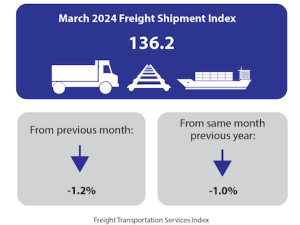Sources with knowledge of discussions on Capitol Hill said that House leaders may drop their five-year package in favor of shorter and less expensive plans for road, bridge and transit construction.
The Democratic-controlled Senate is simultaneously considering a $109 billion measure over two years but House leaders have not committed to a new timeframe or an amount, the sources said.
House and Senate lawmakers left town last week for a 10-day recess with prospects of passing a final transportation bill for the first time since 2005 in serious doubt.
Controversies erupted in both chambers, prompting a threat from the White House to veto any measure that resembled the House bill as written.
However, congressional leaders say they still want to pass a compromise transportation blueprint that will help create jobs in a tough economy and end more than two years of funding road and rail projects through temporary spending bills.
The current stop-gap measure expires March 31.
House leaders are weighing different scenarios but some details of what is under discussion to improve chances of passage emerged on Thursday.
If a smaller bill is pursued, the sources said the House would kill its unpopular proposal to sever mass transit from its long-time dedicated funding source.
The plan to change transit outlays generated sharp criticism across party lines in recent weeks, surprising House leaders and imperiling chances they could win approval of a bill.
Rank-and-file lawmakers are concerned that an alternative funding arrangement for transit would short-change their states at a time when local governments are scrambling for money to keep those programs on track.
A smaller House bill also could result in states receiving less money overall than they do now for highway and transit projects due to less money from gasoline tax receipts and other sources flowing into federal coffers to pay for such programs.
However, the House would keep a provision passed by the chamber last week to expand offshore oil and gas drilling to raise new revenues for transportation. That measure also includes proposal to revive development of the Canada-to-Texas Keystone XL oil pipeline that was put on hold by President Barack Obama.
A spokesman for Speaker John Boehner said the Senate's "unwillingness" to consider a larger bill may force the House to change its plans. But Boehner remains committed to linking expanded oil and gas development to infrastructure as a way for Republicans to "stay on the offensive on energy and jobs." (Reuters)








